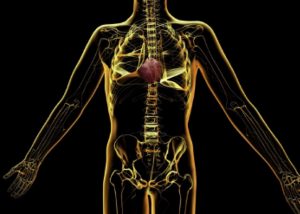CompBioMed featured on Futuris programme of EuroNews
We’d like to announce that our work has been featured in the EuroNews programming within the Futuris section looking at the latest news about the leading scientific and technological research projects in Europe. Project Coordinator, Peter Coveney as well as Andrea Townsend-Nicholson were interviewed from UCL, and Dieter Kranzlmüller and ...

PhD studentship in Virtual Human Cardiovascular Modelling & Simulation
The Centre for Computational Science (CCS) of University College London (UCL) is offering a fully-funded studentship to a highly motivated candidate to start in September 2020. The studentship will cover tuition fees at UK/EU rate plus a maintenance stipend of £17,285 (tax free) per annum for three years. The post-holder ...
The World’s Fastest Computer to Join Fight Against COVID-19
In our previous blog posts we have highlighted in the work of the Argonne National Laboratory (ANL) and Barcelona Supercomputing Center (BSC) that High Performance Computing (HPC) resources are an invaluable research tool. Much like their counterparts and colleagues around the world, Japan’s top scientists are now refocusing and accelerating ...
AI-driven integrative biology for accelerating therapeutic drug discoveries to treat SARS-CoV-2
CompBioMed partners and academics from other research facilities are carrying out research to address the fundamental biological mechanisms of both the SARS-CoV-2 novel corona virus and the COVID-19 disease it causes. The ongoing research also includes an attempt to target the entire viral proteome (entire complement of proteins that is ...
Cardiotoxicity: Supercomputer-based in silico studies by CompBioMed Core Partners aiming to make COVID-19 treatment safer for the heart
The use of certain drugs can disturb the rhythm at which hearts beat. This disruption can have toxic effects on the heart, which are particularly dangerous for those with underlying medical conditions. Two drugs which are known to have proarrhythmic effects are the antimalarial drugs azithromycin and hydroxychloroquine. Azithromycin and ...
3-year PhD studentship in the simulation of chaotic systems
The Centre for Computational Science (CCS) of University College London (UCL) in collaboration with CBK Sci Con are offering a fully-funded studentship to a highly motivated candidate to start in September 2020. The studentship will cover tuition fees at UK/EU rate plus a maintenance stipend of £17,285 (tax free) per ...
Repurposing Existing Drugs in the Fight Against COVID-19
The use of existing pharmaceutical to treat COVID-19 has several potential benefits over the development of new drugs from the group up, not least that much shorter clinical trials would be needed and production on industrial scales has already been realised in many cases. Andrew Potterton, a PhD student at ...
Coronavirus Resources Across CompBioMed
Here at CoronaBlog, where we will be providing regular news and updates on the research activities of the CompBioMed members, their collaborators, and the wider scientific community, we have established several other resources to provide information and aid in the COVID-19 research efforts: CompBioMed and Coronavirus provides an overview of the ...
Webinar on how AI in Computational Medicine is Leading The Charge in COVID-19 Drug Discovery
There are tens, perhaps hundreds of billions of compounds which can be utilised by the pharmaceutical industry in the development of new drugs. An exhaustive exploration of more than a handful experimentally is impossible, modern computational techniques are however now beginning to lead the way. Quantum Chemical calculations run on ...
Introducing the CoronaBlog
The ongoing coronavirus pandemic is having a profound impact on how we go about our day to day lives and is dominating world news and conversation (conducted from the recommended social distances, or preferably via video chat or social media). Since the outbreak was identified in Hubei Province, China in ...
